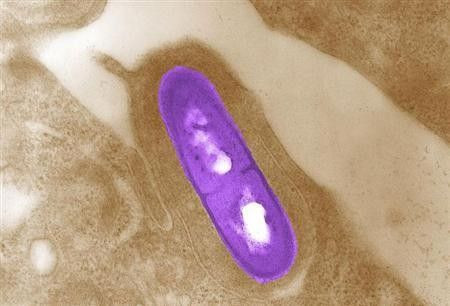Avoid Catching Listeria From Caramel Apples During Halloween This Year: Study

Halloween is incomplete without its favorite "caramel apples" punctured with dipping sticks. However, a latest research suggests that caramel apples are likely to become the hotbed of deadly Listeria if these are not refrigerated properly or consumed fresh.
The 2014 Listeria outbreak that left 35 infected and 7 dead was ultimately linked to the use of pre-packaged caramel apples. The fact that caramel apples are actually too acidic for the bacteria to grow triggered the researchers at the University of Wisconsin-Madison's Food Research Institute to study how the favorite Halloween treat acts as a source of deadly Listeria monocytogenes.
During the study, the researchers swabbed the apples with bacteria before dipping them in caramel with the help of tongs. Once the apples cooled down, they were stored for a period of four to six weeks at temperatures ranging from 77 to 44.6 degrees.
The analysis of the surface of the apples at the end of the storage period showed that the hot temperature of the caramel had not killed the bacteria. The team also found that the caramel surface provided a ground for the bacteria to grow and survive.
Since the bacteria could grow even in the refrigerated temperature, the researchers say that they could potentially cause an infection if consumed after weeks of being prepared.
"If someone ate those apples, fresh, they probably would not get sick," said lead study co-author Kathleen Glass of the Food Research Institute, in a statement. "But because caramel-dipped apples are typically set out at room temperature for multiple days, maybe up to two weeks, it is enough time for the bacteria to grow."
The researchers also found that in the case of apples punctured with a stick, the concentration of the bacterial growth remained around the stick.
Although the research team deliberately infected the apples with the bacteria, it can still come from anywhere during the preparation of the dish. Therefore, it is recommended to wash the apples in the kitchen before preparing caramel apple and think twice before purchasing store-bought caramel apple.
© Copyright IBTimes 2025. All rights reserved.



















